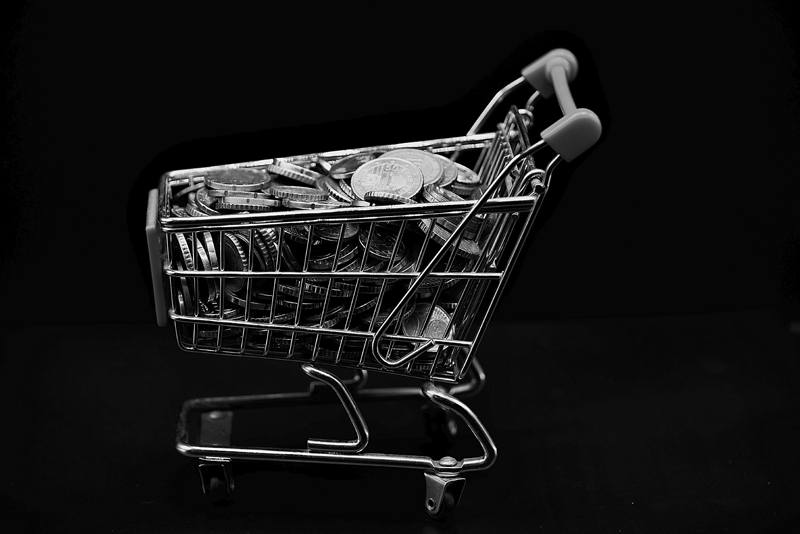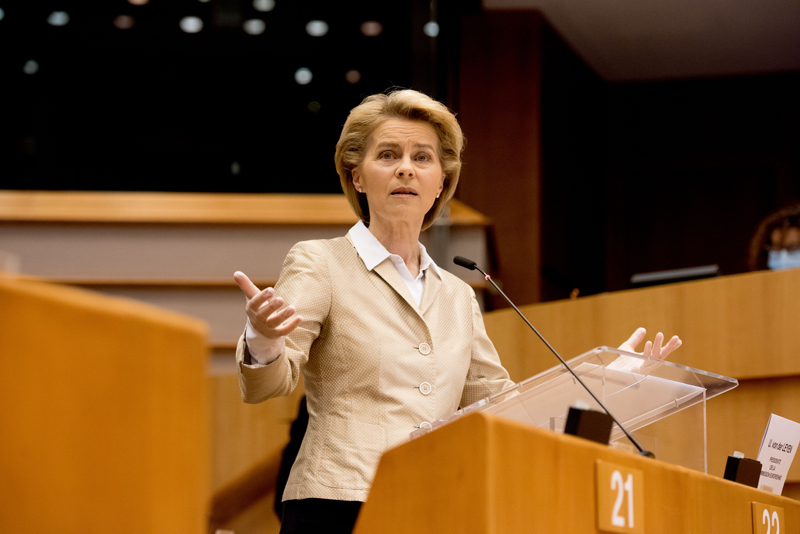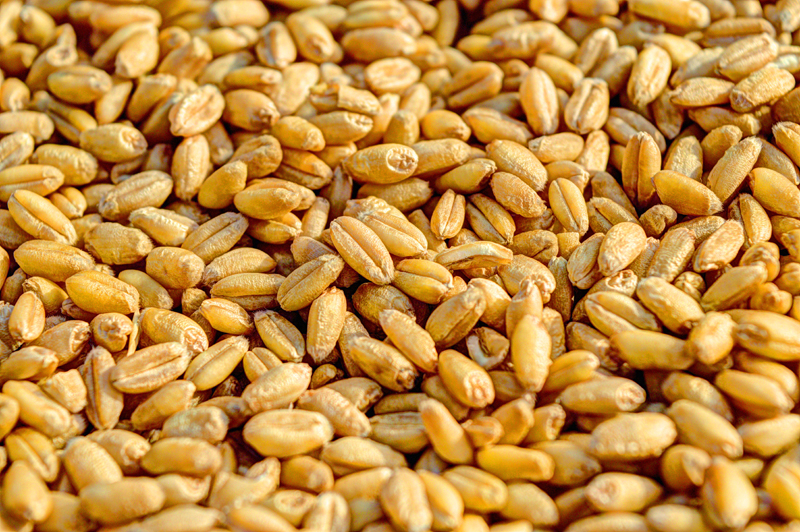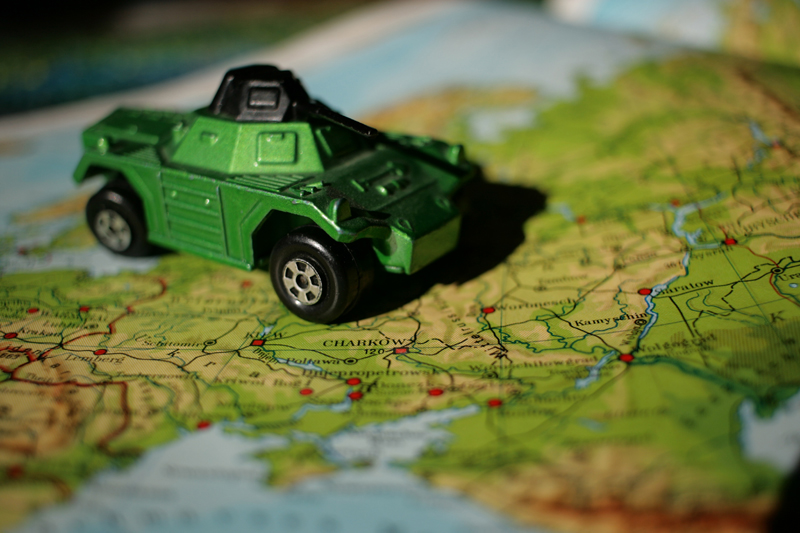
- The Ukrainian war has questioned the economic measures that had been announced for the economic recovery after COVID-19. In recent weeks the Community authorities have taken decisions of a wide variety of kinds. Some of them will directly affect the life of the general public. In the following lines, with the help of the economist Baleren Bakaikoa, we will try to explain some keys to this complex situation.

One of the problems with the predictions you read in today's newspaper is that a news item in tomorrow's newspaper can turn upside down. The last two years have been abundant in this kind of news. And especially difficult for economic information journalists.
When it seemed that the worst of COVID-19 happened, one could think that the components to forecast where the economic policies of the European Union (EU) were going were fairly consolidated. The EU was heavily indebted: the launch of the Next Generation EU fund to boost post-pandemic recovery (EUR 1.82 trillion, some of which have been received but do not have to be returned by states).
In relation to this new economic policy, there are many reports of green and digital transition. Some experts also proposed restoring the ideas of John Maynard Keynes, a greater involvement of states in economic policy, among other things to promote employment or to establish a higher tax burden on higher incomes.

The economic prescriptions after the health emergency, therefore, did not seem like those used to deal with the financial crisis of 2008. On this occasion, the authorities reported that, rather than restrictive policies, those based on investment and public intervention would prevail. Speaking of the need for these measures, in April 2020, the President of the European Commission, Ursula Von der Leyen, brought them into line with the Marshall Plan. It appeared to be a significant change of record, considering that he is a member of the CDU, the party that most pushed austerity approaches to deal with the previous crisis.
This was the general picture for the ordinary press reader until February 24, 2022. However, one piece of news, the Russian invasion of Ukraine, and the reactions that have been published every almost minute in days and weeks thereafter, have put everything in doubt.
EU subject to inflation
One of the first collateral economic damages of the war has been noted in the rise in oil prices. Economist Baleren Bakaikoa explains to ARGIA that it is not something that is only noticed when filling the car tank: “Fuel intensification leads to production costs, which affects inflation.” Not only oil, but also gas is becoming more expensive, although in this case speculative movements were before the outbreak of war, and in recent months there has been an increase in prices. Moreover, it has been paying more and more for wheat, maize or sunflower, since Russia began the attack on Ukraine. “They’ve become completely expensive because they’re produced there. Russia and Ukraine are the European barns. This has been one of the EU’s main attractions. With the creation of the EU, one of the objectives was to develop food sovereignty. In the early years it worked pretty well, but then it was opening, bringing from the outside, and we became very dependent on Ukraine and Russia.”

Economists already talked about the risk of inflation before the war. The difference is that now the issue has shifted from the print media on salmon paper to ordinary street interviews. Because if prices and wages do not rise, with the same money the citizens have to face higher costs. And that means they're now something poorer than they were a few months ago. Since 2008, many domestic economies that have not lifted their heads have already suffered a new blow.
The same money, higher spending: inflation is already noticeable in street dialogues
It's not just that, of course. Rising inflation has many other meanings. It means, for example, that war is also lived by the currency with which we buy. “If inflation were the same here and in the US, the exchange of euro dollars could remain quite stable. But in the EU it is rising a lot because we have a great need for raw materials, and the US does not have that much pressure because it can diversify its sources of oil and raw materials.” In short: If EU inflation goes up much further, the euro is lost in exchange for the dollar. The available EUR can be lower if the situation follows the path that follows when writing these lines.
Who is more neoliberal?
To avoid this, the European Central Bank (ECB) should implement price stability policies. And the tool it uses for that is interest rates. “The ECB only works with that, because its objective is price stability,” explains Bakaikoa. “The Federal Reserve EE.UU, for its part, has two objectives: stabilizing prices and creating jobs. They also look after employment and, if there is inflation, they do not increase the interest rate in any case, because if they do so, companies do not ask for loans. They take both variables into account. In the EU they have only the objective of inflation, employment is indifferent. We therefore risk increasing unemployment.”
This difference between the ECB and the Federal Reserve breaks, at least in part, some fairly widespread prejudices about the EU and US economies. EE.UU. are the main exponents of neoliberal praxis. This image is not entirely erroneous, but since most of the readers of this media live in two Member States, it is worth clarifying. In fact, Bakaikoa considers that “the EU is much more neoliberal” in economic policies, even though the mouth is filled with words like ‘well-being’. That comes from the past, but it's shrinking," he says.
Increased debts and military spending from European funds can further reduce social aspects
He specified that although EE.UU. It may often seem like a country without hardly any state intervention, “when they need it Keynes uses it. Instead, here they speak in the name of the state that Keynes designed, but they don’t use it when it’s needed.” The exception may be the time we are living, but it is to be seen: “There seem to be a lot of companies at risk of closure, and the European Commission has opened up a little the source of aid to these companies so that they can survive. But in America, they do it without complexes. With Donald Trump, steps were also taken in this direction, as checks of $2,000 were handed over to families. This is a Keynesian measure: state subsidies to promote consumption.”
Increased military expenditure
More than this type of aid, the EU has been announcing others since the beginning of the war. Forecasts made for 2022 are no longer valid, according to Economic Commissioner Paolo Gentiloni on 14 March. Growth of 4% will be “difficult”, he says. The priority map has also been modified. There are areas that will take a lot of money. Mentions: “Economic and material support for Ukraine; defence spending; separation of Russian energy; reception of a large number of refugees; continued support to address high commodity prices and production disruptions.”

In this list there is one piece that responds to the pressure of some lobbies in recent years: the increase in military spending, which Gentiloni presented with the euphemism “defense spending”. As Bakaikoa recalled, since Trump’s mandate, EE.UU. called on NATO countries to increase military spending to be well armed at a “new risk”. The situation in Ukraine has made it easier for those who spent less in this direction.
One was the Spanish state. Pedro Sánchez announced on 14 March that in future budgets he will comply with what is required of European NATO members: Allocate 2% of Gross Domestic Product to weapons (currently spending 1.4%, according to the Stockholm International Peace Research Institute). The French State, for its part, fulfils this 2% and plans to increase spending to 2025, with an additional EUR 3 billion each year, to EUR 50 billion, which will set the course for the next five years by the April presidents.
Germany, a benchmark on most important EU issues, has also spoken clearly. “We need new tanks, new boats… and we will build them with partners like France in Europe,” said Olaf Scholz, Parliamentary Chancellor on 27 February. With an additional EUR 100 billion, Germany will also have a military expenditure of 2% of GDP.
Added to this increase is the lack of definition of Next Generation EU funds. “They’re late and projects are quite in the air,” says Bakaikoa. You also dare to make an announcement: “I believe that much will be spent and that performance will be nothing of the other world. And then we'll have to pay them, of course." By combining the two components, the increase in military spending and the debt incurred by EU funds, the economist believes that the authorities will end up cutting the economic headings of the welfare society. It's nothing new, of course. “What measures were taken to bring the euro into force? Reduce social costs. How did you face the 2008 financial crisis? Reduce social costs. If a policy to increase defence spending is established, social spending will be affected: pensions, education… already affected”. Pressured by a tank, Keynes's name can disappear from economic news.
Edozein gerrak galtzaile asko izaten du. Baina badira egoerari etekina ateratzen diotenak ere. Errusiarekiko dependentzia energetikoa gutxitu nahi duten EBko herrialdeek azkarrago egin beharko dute beste energia-iturri batzuetarako trantsizioa, baina hori gauzatzen den bitartean, hutsune energetikoa betetzeko bide berriak bilatu beharko dituzte. Eta Bakaikoaren iritziz, hori AEBei ongi datorkie. Fracking bidez ekoizten duten gasak orain gerra-egoeraren gatibu bilakatu diren bezeroak dauzka Europa mendebaldean. Berez teknika horren bidez lortutako erregaiak produkzio-kostu askoz handiagoak ditu beste iturrietatik lortutako gasak baino. Baina orain errentagarria bihurtu da, prezioak sabaia puskatzen ari diren egoera batean gaudelako; eta horren eraginez, kostuak erraz berdintzen dira.
“EBk, Norvegia kenduta, ez dauka ez gasik eta ez petroliorik”, gogorarazi du Bakaikoak. “Kontinente berean Errusia zen horiek inportatzeko hurbilen zegoen lekua. Europako motor ekonomiko handiena Alemania da, eta apustua egin zuen Errusiako gasarekin eta petrolioarekin funtzionatzeko. Horregatik zen hain inportantea Nord Stream 2 gasbidea”. Baina otsailaren 22an, lehenago inportatzen zuen gasaren bikoitza garraiatzeko pentsatutako proiektu hori izoztu zuen Alemaniak, Vladimir Putinek egun bat lehenago Donetsk eta Luhanskeko errepubliken independentzia formalki onartu ostean.
Hala ere, gasbide horren inguruko tira-birak ez dira atzo goizekoak. Iazko irailetik bukatuta egon arren, ez zen martxan jarri. Zergatik? ARGIAren irakurleek gogoratuko dute aldizkari honetako Net Hurbil sailean iazko maiatzean argitaratutako artikulu bat: “Nord Stream 2 gasbidearekin Europa katramilatuta Mosku eta Washingtonen lehian” izenburua jarri zion Pello Zubiriak artikulu hari eta egungo egoera esplikatzeko balio dezaketen zenbait gako eman zituen.
Besteak beste, Errusiaren eta AEBen arteko norgehiagokan Ukrainak jokatu zuen rola: “Errusiatik Europa asetzen zuen hodi nagusia luzaz Ukraina zeharkatzen zuena zen eta ukrainarrak saiatzen ziren Sobiet Batasunaren aroak utzitako ondare horri zukua ateratzen, kanalaren erdi-bideko giltza zabalik edukitzearen truke errusiarrei prezio eta baldintza hobeak kobratzeko. 2014ko Krimea galtzea eta berrikitan beroaldia nozitu duen Donbasseko gerra, ezin ulertu gasaren liskarrik gabe. Ukraina saihesteagatik, gainera, Moskuk mugimendu bikoitza egin du azpiegituretan: hegoaldetik hodi berri bat eraiki Turkia zeharkatuta Bulgaria eta Serbian barrena iristeko Hungaria eta Austriaraino, eta Iparraldetik Nord Stream hodiari bigarrena gehitzea”.
Alde bateko zein besteko propaganda alde batera utzita, irakurlea gai izango da osagai horiekin gerra honen atzean dauden oinarri ekonomikoak zein diren antzemateko.